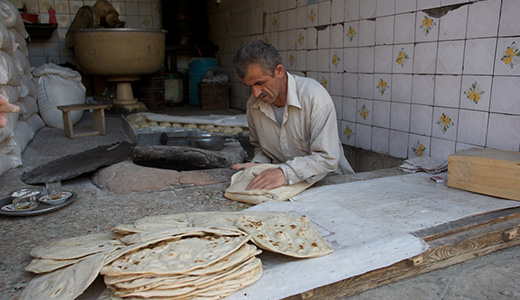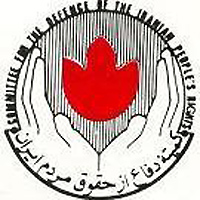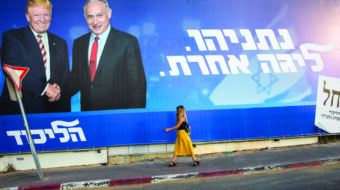
The government of the Islamic Republic of Iran in December slashed subsidies on food, water, electricity and fuel. They say the subsidies have been too expensive, costing them around $100 billion annually. Gasoline prices will rise from 10 cents per liter to 70 cents. Electricity prices will jump from around $5 per month to $20. The cost of natural gas will rise from around $30 per month to $150.
The cutbacks have been described as the “biggest surgery” to the nation’s economy in 50 years. The cuts come as the Iranian economy continues to strain under international sanctions imposed earlier this year by the UN, the U.S. and the EU over Iran’s nuclear program.
The cuts have been combined with a wave of economic terrorism unparalleled even for the Islamic Republic as the government attempts to drive down the minimum wage and arrest trade unionists arguing for improved terms and conditions for the workforce. The “grand economic surgery” was announced just as negotiations with the Supreme Labour Council to set the minimum wage for the coming year were due to proceed. The minimum wage for 2010 had been set at $303 per month even though the acknowledged poverty line is set at $1,000 per month. Trade unions have argued that the minimum should rise to at least $2,000 per month, based upon the needs of a family of four, while the government is seeking to drive it down from its $303 level.
A joint statement issued by six major trade union organizations in Iran has pointed out that the minimum wage “… has never been sufficient to cover living expenses and with the continual annual inflation increases workers and their families have fallen deeper into poverty.” The statement goes on to demand that the minimum wage should “… be determined according to inflation and consideration of a respectable living cost for a family of four.” The driving down of the minimum wage combined with the elimination of subsidies will undoubtedly put immense strain upon ordinary Iranian families.
However, the government is not prepared to stop there. The launch of the “grand economic surgery” was combined with a wave of arrests of political and social activists and journalists in Tehran and other cities on December 19 last year. Those interned included the writer Faiborz Raeis Dana. No reason has been given for the arrest. Also arrested were Lotfollah Meisami, executive director of Iran’s Outlook, and Mohammad Sadegh Javadi Hesar, editor of the banned daily Quds. Both were put on trial and found “guilty.”
The trade union of the Haft Tapeh (Sugarcane) workers has strongly condemned the sentencing of Reza Rakhshan, interim chair of the board of directors of the union, to six months in jail for manufactured charges of “propagating lies and false statements.” Rakhshan is the latest in a line of trade unionists from Haft Tapeh who have served six-month sentences for carrying out their trade union duties.
The case of popular filmmaker Jafar Panahi has received international attention. Panahi was sentenced to six years discretionary imprisonment in addition to being banned for 20 years from making films, writing scripts, conducting interviews or leaving the country. The climate of fear and intimidation was further heightened by the execution of more than 20 detainees over the recent weeks by order of the Islamic judicial authorities.
The combined austerity measures and clampdown upon activists across Iran are no coincidence. The unpopularity of the government has not been in question since the stolen election of June 2009 and it is clear that the leaders of the Islamic Republic are prepared to take no chances as they bow to the pressures of the IMF and World Bank to tighten up on the limited social programs available to ordinary Iranians.
As the winds of change blow across the Middle East from Tunisia to Egypt to Yemen it will be interesting to see if the flame of resistance is reignited on the streets of Iran as the current cuts bite. Having shown the way in taking to the streets following the 2009 election the people of Iran may yet feel inspired by events elsewhere to once again put pressure upon their leaders. As the cuts deepen and the economic prospects darken, they may have little to lose.
For further information visit www.codir.net.
Photo: Baking bread in Massouleh, Iran. indigoprime CC 2.0












Comments